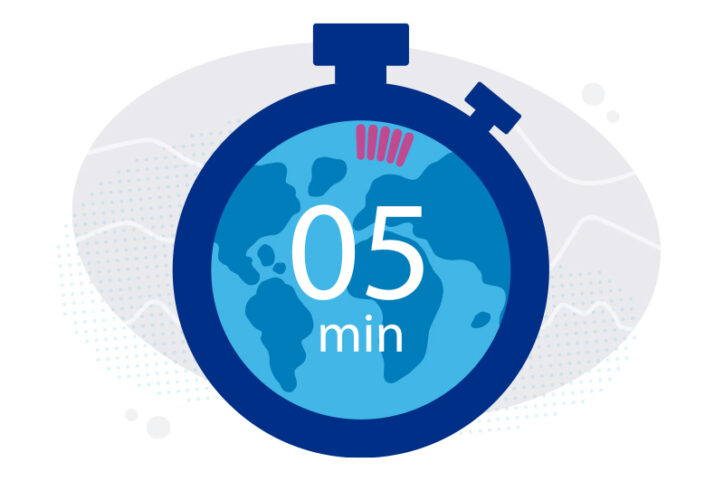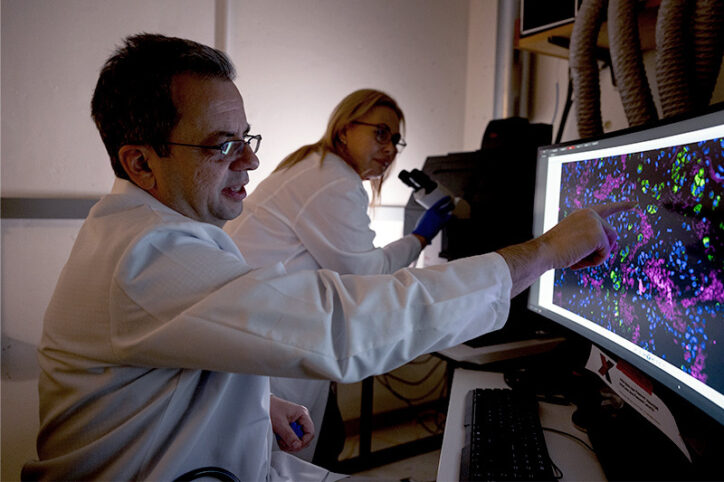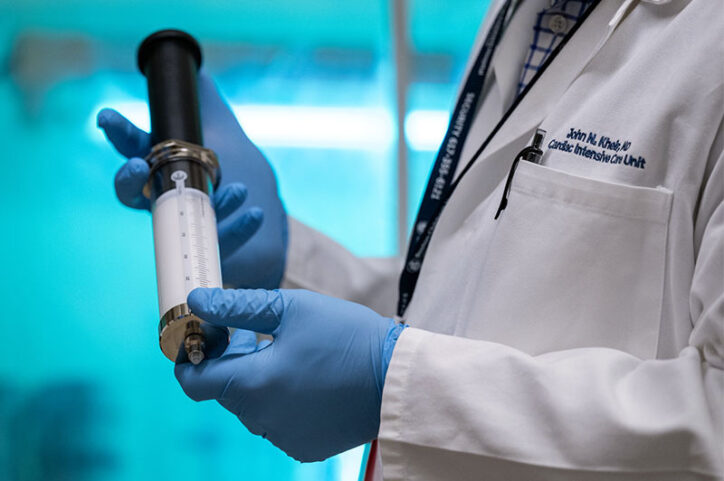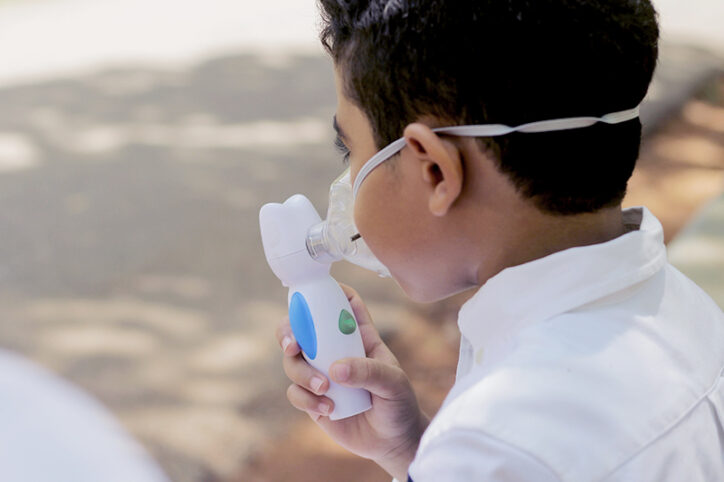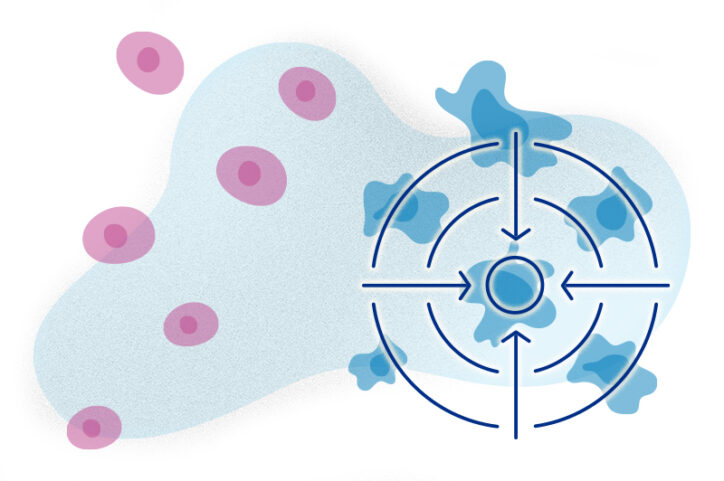Archive for research
Status epilepticus: What’s changed, what to know, and a global perspective
Status epilepticus, or a prolonged seizure lasting more than five minutes, is a rare complication of epilepsy and a medical emergency that can occur even in people without a diagnosis of epilepsy. If not treated quickly, it can cause brain damage, lifelong complications, and even death. “A prolonged seizure is a race against time to ... Read More about Status epilepticus: What’s changed, what to know, and a global perspective
Tagged: emergency medicine, epilepsy, neurology, research, seizures
Conduction tissue mapping is shown to significantly reduce heart block
New research by Boston Children’s validates an innovative approach to mapping the heart’s invisible conduction tissue during surgery. Key takeaways Using a catheter to map unseen conduction tissue drastically reduces heart block during biventricular repair surgeries for several heart conditions. Conduction tissue was identified in 96 percent of patients who were mapped. Only 4 of ... Read More about Conduction tissue mapping is shown to significantly reduce heart block
Mapping cells to create targeted treatments for interstitial lung disease
John Kennedy, MD, MSc, remembers the relative simplicity of his first genetic mapping project. In a Harvard Medical School lab, he helped map a gene for the neurological disease mucolipidosis type IV in less than a year. “I was fresh out of college. I thought with the global momentum of the Human Genome Project, we were going to ... Read More about Mapping cells to create targeted treatments for interstitial lung disease
Changing lives through genetics: The Children’s Rare Disease Collaborative
A 14-year-old girl was having back pain after a car accident and visited an orthopedic clinic at Boston Children’s Hospital. In the course of her care, she joined the Children’s Rare Disease Collaborative (CRDC), a hospital-wide effort to enroll children and adults with rare diseases in genetic studies. Genetic testing revealed that both she and ... Read More about Changing lives through genetics: The Children’s Rare Disease Collaborative
Tagged: diagnostics, genetics and genomics, rare disease, research
Injected microbubbles could be a safe way to deliver emergency oxygen
For years, researchers and clinicians have been trying to find a way to rapidly deliver oxygen to patients when traditional means of oxygenation are difficult or ineffective during critical moments of cardiac or respiratory arrest. Sometimes, hypoxemia caused by airway obstruction or lung disease can be so severe that methods to boost low-oxygen levels (including ... Read More about Injected microbubbles could be a safe way to deliver emergency oxygen
Making pediatric health equity research truly equitable: An EDI review process
A burgeoning number of studies are examining pediatric health equity, diversity, and inclusion (EDI). But if not done right, health equity research can do a disservice, perpetuating biases and wrong assumptions that actually exacerbate inequities. To guide EDI-related studies, the Institutional Review Board (IRB) at Boston Children’s Hospital (through Tina Young Poussaint, MD, and Susan ... Read More about Making pediatric health equity research truly equitable: An EDI review process
Tagged: health equity, research
Will early intervention prevent asthma in school-age children?
Asthma affects about 1 in 10 children, often sending them to the emergency room or causing them to miss school. Allergic conditions in young children — like food allergies or eczema — are often a precursor. Susceptible children begin producing IgE antibodies, which trigger allergic reactions and spur the “allergic march” toward asthma. IgE antibodies ... Read More about Will early intervention prevent asthma in school-age children?
Tagged: allergy, asthma, clinical trials, research
Finding a possible genetic treatment for rare arrhythmias
Variants in a gene that plays a key role in heart function can cause potentially life-threatening arrhythmia syndromes known as calmodulinopathy. Calmodulinopathy is rare and causes arrhythmias that are poorly treated by current options. Boston Children’s cardiologist William Pu, MD, believes he has found a promising custom genetic treatment: antisense oligonucleotides that deplete the disease-causing gene product. ... Read More about Finding a possible genetic treatment for rare arrhythmias
New insight into the effects of PPIs in children
Proton-pump inhibitors (PPIs) are frequently prescribed to suppress stomach acid in patients with gastroesophageal reflux disease (GERD). Prescribing rates of PPIs in children have risen more than 500 percent in the past two decades, despite growing concerns about their risks: Previous research has linked their use to an increased risk of various pulmonary and gastrointestinal ... Read More about New insight into the effects of PPIs in children
Tagged: aerodigestive, coronavirus, gastroenterology, microbiome, reflux, research
Immunotherapy for children with primary liver carcinomas: Research offers new hope
Pediatric hepatocellular carcinoma (HCC) and fibrolamellar carcinoma are rare, aggressive forms of liver cancer that typically affect adolescents and young adults. Although some immunotherapy drugs are approved by the Food and Drug Administration as first-line treatments for HCC in adults, less is known about their effectiveness in treating pediatric liver carcinomas. Now, new research led ... Read More about Immunotherapy for children with primary liver carcinomas: Research offers new hope
Tagged: cancer, immunotherapy, liver disease, research


